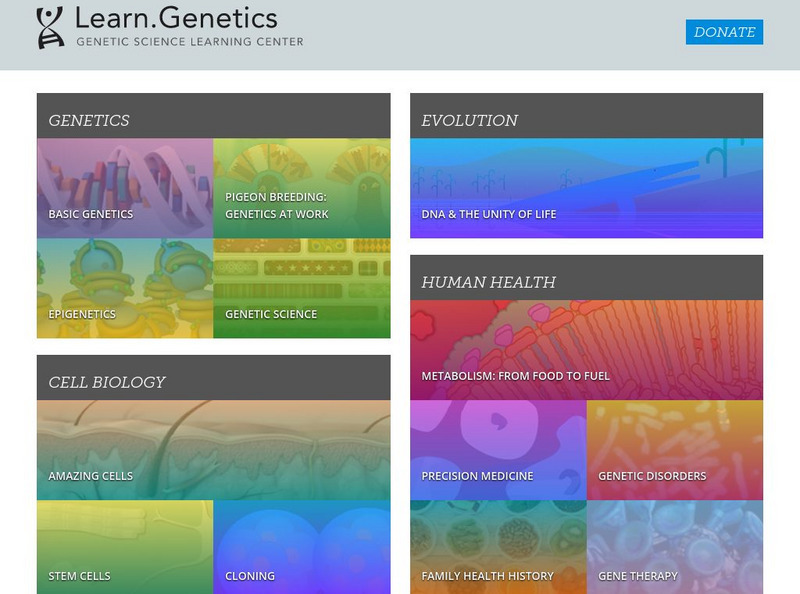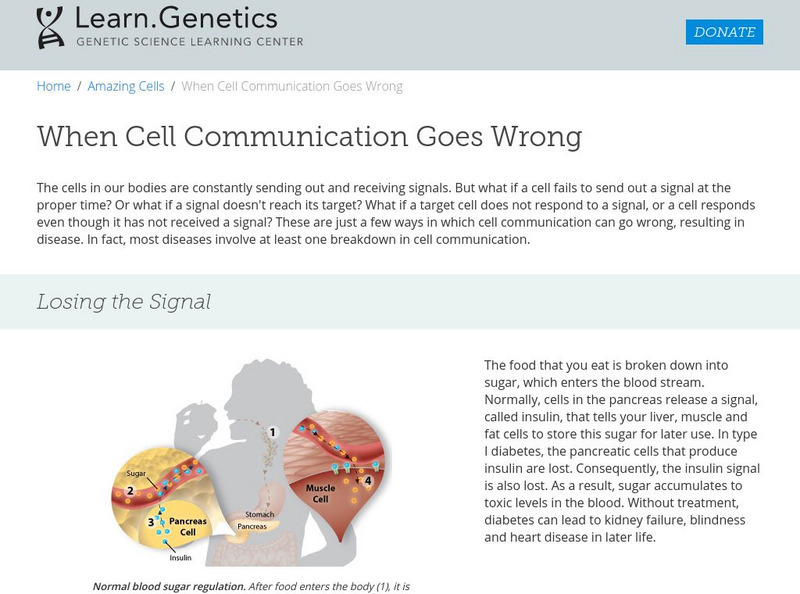Palomar Community College District
Palomar College: Blood Components (Tutorial)
This review of what makes up human blood is easy to read and understand. There are guides to pronunciation and glossary links as well as a self quiz to check your understanding.
PBS
Pbs Teachers: Changing Your Mind: Nerve Cell Infomercials
Build nerve cell models in cooperative groups, and articulate the structure and function of nerve cells to explore the nervous system. Describe specific elements of human physiology by "advertising" the nervous system in nerve cell...
University of Utah
University of Utah: Genetic Science Learning Center: The Basics and Beyond
This website offers a clear definition of the science of Genetics, highlighting DNA and genes. There is a neat, easy-to-understand animated tour of the basics and an opportunity to go inside an animated cell. Student can build a DNA...
University of Utah
University of Utah: Learning Center: learn.genetics: Wrong Cell Communication
Learn about the many ways cell communication can be disrupted, and how this problem sometimes results in disease.
Other
Dr. Saul: Biology in Motion
This interactive site provides animations and activities in several areas of physiology. The images are simple, but clear. The accompanying text provides a good description of the process being shown.
Open Curriculum
Open Curriculum: The Skeletal System
After studying this article, students will be able to identify the functions and structure of bones, types of bones, bone development, parts of bones, types of joints, and bone disorders.
National Cancer Institute at the National Institutes of Health
Seer Training Modules: Introduction to the Lymphatic System
Self-guided learning activity where students learn about the structure and function of the human lymphatic system. There is a short quiz at the end of the lesson to check for understanding.
National Cancer Institute at the National Institutes of Health
Seer Training Modules: Introduction to the Nervous System
Self-guided learning activity where students learn about the structure and function of the human nervous system. There is a short quiz at the end of the lesson to check for understanding.
TED Talks
Ted: Ted Ed: How We See Color
There are three types of color receptors in your eye: red, green and blue. But how do we see the amazing kaleidoscope of other colors that make up our world? The following learning module explains how humans can see everything from...
CK-12 Foundation
Ck 12: Life Science for Middle School
This digital textbook covers core life science concepts and includes interactive features, real-world examples, and videos.
OpenStax
Open Stax: Anatomy and Physiology: Types of Tissues
The term tissue is used to describe a group of cells found together in the body. Although there are many types of cells in the human body, they are organized into four broad categories of tissues: epithelial, connective, muscle, and...







